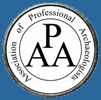|
Given that a large number of as yet unknown and potentially undisturbed archaeological resources lay protected on Conservation Lands, this news seems promising. Keep an eye out for calls for Public Consultation in 2021 so that we can increase awareness for the protection of cultural resources on public lands.
- Cathy Crinnion, APA Administrative Secretary
~~~~~~~~~~~
News Release
December 16, 2020
Input will lead to improved conservation and protection of the province’s water, land and natural resources
TORONTO — The Ontario government is creating a working group to help implement changes to conservation authorities. Hassaan Basit, President and CEO of Conservation Halton will chair the new group which will provide input on the development of proposed regulations under the Conservation Authorities Act, and on how conservation authorities are governed.
"As we move forward together, we want to build stronger relationships with conservation authorities so we can work together to ensure consistent best practices, good governance and appropriate accountability to best serve the people of Ontario," said Jeff Yurek, Minister of the Environment, Conservation and Parks. "I'd like to thank Hassaan Basit for the discussions over the last few weeks which helped inform some recent amendments to the legislative changes to ensure conservation authorities have the tools they need to protect their communities. I look forward to continuing our positive and constructive dialogue towards our shared goals."
As part of the government's commitment to ensuring conservation authorities focus and deliver on their core mandate of protecting people and property from flooding and other natural hazards and conserving natural resources, the province introduced legislative changes through Bill 229, Protect, Support and Recover from COVID-19 Act, 2020, which received Royal Assent on December 8, 2020. Amendments were made to the Bill based on valuable feedback from stakeholder groups, including conservation authorities.
The new working group will include representatives from conservation authorities and other experts. Representatives of the working group will be announced in the coming weeks.
Once they begin work in January, the working group will provide input to help the province develop regulations that will focus on:
- The mandatory core programs and services conservation authorities would be required to provide,
- The agreements between municipalities and conservation authorities and the transition period associated with non-mandatory programs and services, and
- How local members of the community can participate in their conservation authorities through community advisory boards.
"Partnerships and collaboration are critical to ensure that conservation authorities can continue making watershed-based resource management decisions in the interest of the environment, health, and safety," said Hassaan Basit, President and CEO, Conservation Halton. "Alongside conservation authorities across Ontario, Conservation Halton is looking forward to working with the province, offering scientific expertise and leadership, in the development of regulations pertaining to recent amendments to the Conservation Authorities Act contained in Bill 229."
In addition to the input provided by Hassaan Basit and the working group, Ontario will also be seeking the public's feedback on regulatory and governance proposals through the Environmental Registry. Public consultation on these proposals is also expected to begin early in the new year.
|



